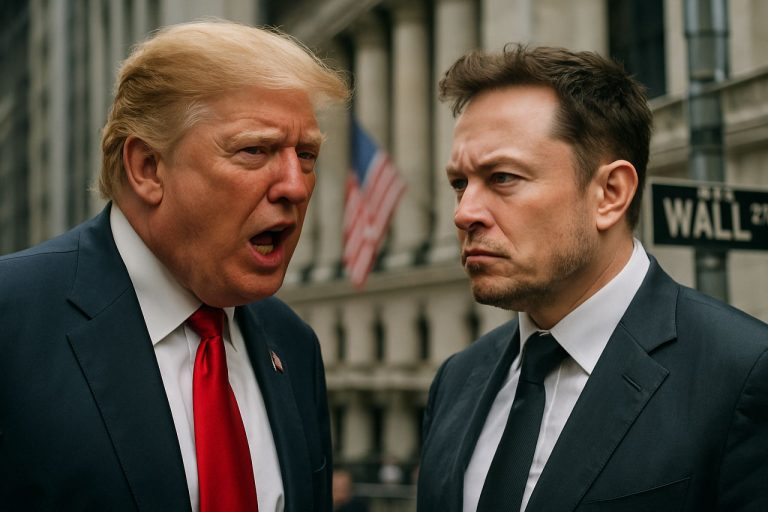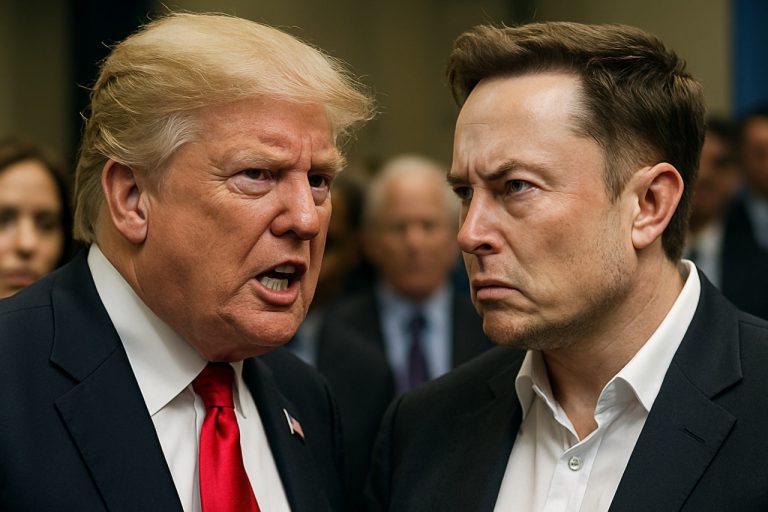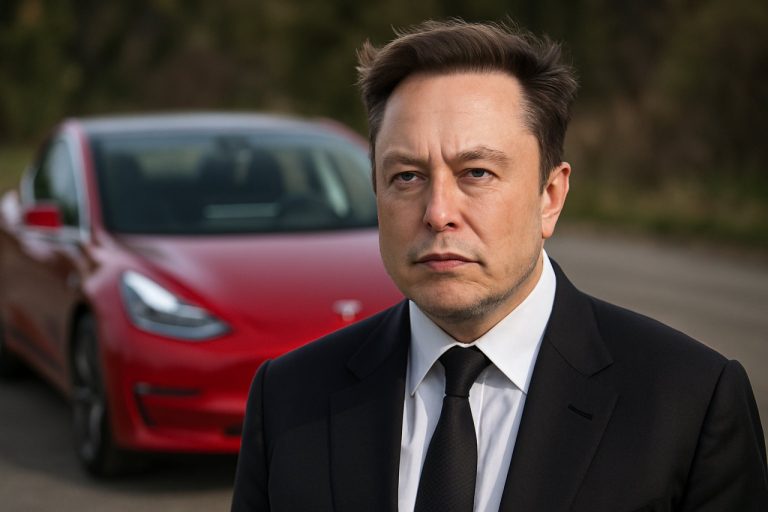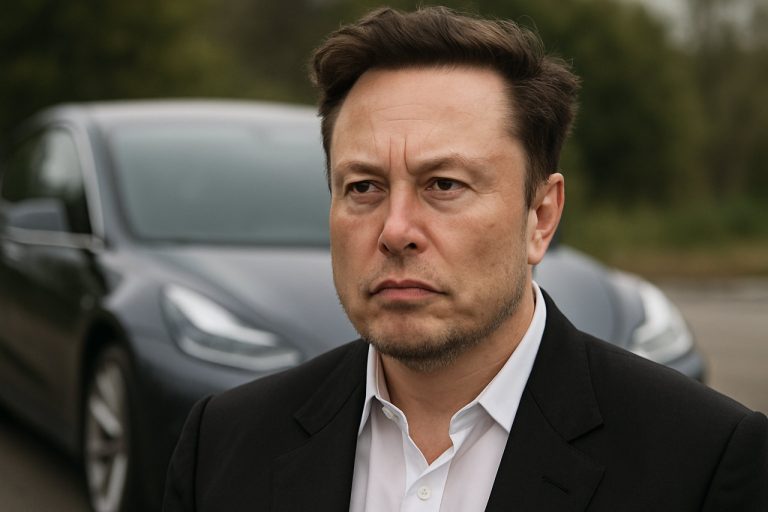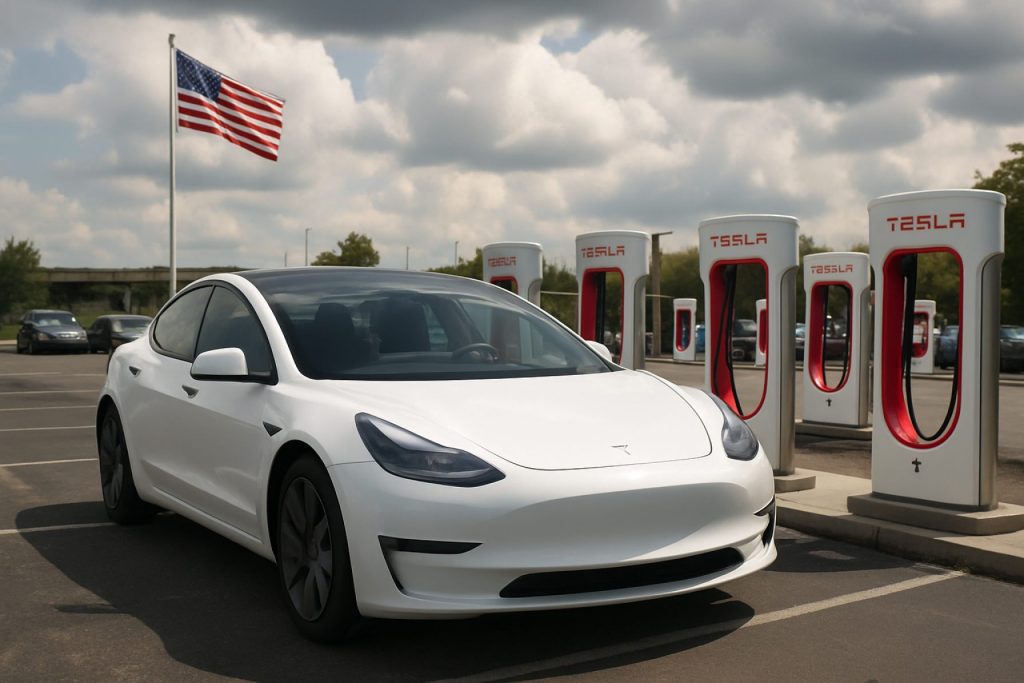
Why Electric Car Fever in America Has Chilled—And What Tesla and the Industry Must Do Next
EV excitement cools in the U.S. as Tesla stumbles, but experts predict an electric rebound. See what’s next for Tesla and the entire EV market.
- EV Market Share 2025: Projected to reach 10.8% in the U.S. (UBS)
- Tesla’s 2024 Market Share: Dropped from 55% to 48.7%
- EV Sales 2030: Predicted to hit 20–24% of U.S. market
- American Buyers Interested in EVs: Only 16% say they’re likely to choose one next
America’s electric car enthusiasm is sputtering just as Tesla—the flagbearer of the EV revolution—struggles with slumping sales, fierce competition, and political distractions. Still, most analysts agree: neither Tesla nor the broader EV movement is down for the count. In fact, 2025 could set the stage for a remarkable rebound, albeit at a slower, steadier pace than earlier hype predicted.
EV Sales Growth: Slowing, But Not Stopping
EV sales are still inching upward, albeit with far less sizzle. UBS projects U.S. electric car sales to reach about 1.3 million in 2025—a slim but meaningful uptick from 2024’s 10.4% market share to a forecasted 10.8%. Looking further ahead, expectations remain strong: by 2030, EVs could command 24% of U.S. new car sales, with some analysts, like Auto Forecast Solutions, projecting a possible 30% share by 2035.
These scenarios hinge heavily on federal regulations. With the possibility of the Trump administration curtailing state-level emissions waivers and relaxing federal standards, the growth trajectory may flatten, especially if automakers lose motivation to push EV production.
How Does America Compare to Europe?
While Americans are dragging their feet, Europe is going all-in on electric—sometimes unwillingly. Government mandates in the EU require aggressive EV adoption: up to 80% of all new sedan and SUV sales must be electric by 2030; 100% by 2035. Miss the quota, and manufacturers face punishing fines.
Yet, the ambitious targets face skepticism. Political pressures and the high cost of compliance are forcing reconsideration, and industry watchers doubt the full bans or quotas will hold without delays or dilution. Critics believe Europe will land far short of 100% electrification by 2035, with rising talk of allowing synthetic gasoline as a loophole.
Tesla: Still King, But Threatened
Tesla’s sales in the U.S. have dipped 9% in early 2025. The brand’s share of the American EV market fell from a mighty 55% to 48.7% in just one year. Key rivals, especially General Motors—whose EV sales more than doubled in Q1 2025—are closing the gap, with Hyundai/Kia and Ford also ratcheting up their efforts.
Despite the competition, Tesla’s Model 3 and Model Y continue to outsell every other EV. However, both saw significant declines after updates paused production and as more Americans found themselves tempted by the latest hybrids or plug-in hybrids, which sidestep prevalent range anxiety.
Is Tesla’s Political Drama Hurting Sales?
The electric automaker’s struggles haven’t just been about cars. Elon Musk’s political entanglements—especially his recent alliances with prominent figures within the Trump administration—sparked debate over how much a CEO’s public persona can influence sales. Some insiders think it alienated buyers, while others suggest it gained new fans. For now, Musk seems to be receding from the political stage as Tesla refocuses on business.
The Much-Rumored Tesla “Model 2”: Game Changer or Pipe Dream?
As talk swirls around an affordable Tesla “Model 2,” priced nearer $25,000, anticipation builds that such a vehicle could spark a genuine mass-market breakthrough. Rumors suggest Tesla will soon announce whether the Model 2 will be an entirely new compact or just a stripped-down Model 3. Either way, investors and would-be buyers are watching closely.
What’s Really Stopping Americans From Going Electric?
A survey from the American Automobile Association underscores a grim reality for EV evangelists: just 16% of Americans are likely to consider an EV for their next vehicle—the lowest interest recorded since 2019. The number resolved against EVs reached 63%. For most, concerns center around charging infrastructure, battery range, and long-term cost.
To that end, hybrids and plug-in hybrids have enjoyed a resurgence. They offer much of the EV experience with less inconvenience, pulling potential buyers away from all-electric models.
Q&A: What’s Next for Tesla and Electric Cars in the U.S.?
Q: Will Tesla recover from its sales dip?
Analysts expect Tesla’s fortunes to steady in late 2025, with growth in 2026. The brand’s dominance may wane but won’t vanish.
Q: Will the U.S. ever mandate EV sales like Europe?
Unlikely. No sweeping federal laws require all-electric sales, while state-led efforts could face legal roadblocks under the current administration.
Q: Are hybrids stealing the show?
Yes. Hybrids and plug-in hybrids are increasingly popular, as Americans seek a practical middle ground while awaiting more charging stations and better batteries.
How to Prepare for EV Trends in 2025
- Track new federal incentives and possible regulatory changes at US Department of Energy.
- Test drive both EVs and plug-in hybrids, weighing range and local charging options.
- Watch for announcements on more affordable models, like the speculated Tesla Model 2.
- Compare total cost of ownership, including tax credits and maintenance.
Will Tariffs Change the Game for Electric Cars?
The looming threat of automotive tariffs and a potential U.S.-China trade war could stifle investments into electric car development. Higher costs may limit choices and slow the pace of innovation for American buyers and automakers alike.
Bottom Line: EVs may not explode in popularity overnight, but they’re poised for stable, long-term growth. Tesla’s recovery is expected, but new competitors and consumer caution will shape the industry’s real winners. Stay informed, shop smart—and keep your eyes on the road ahead.
Actionable Checklist:
- Follow industry news at Reuters and CNBC.
- Sign up for email alerts from Tesla, GM, and Ford for future electric lineup updates.
- Visit your local dealers for upcoming EV test drives.
- Ask questions about charging, maintenance, and incentives before deciding on your next car.
